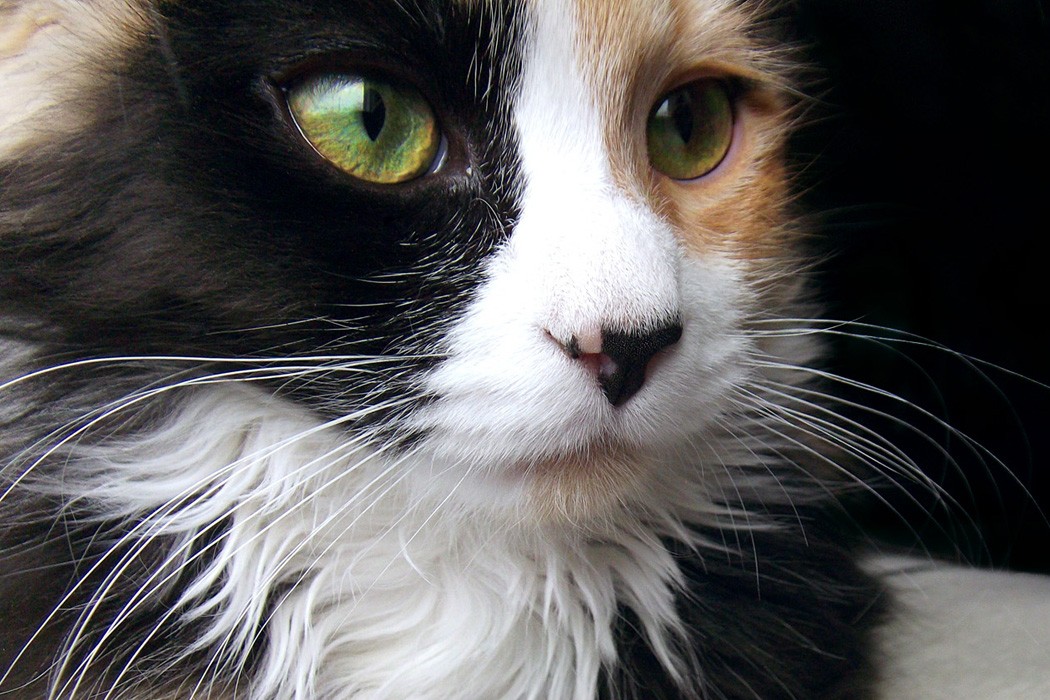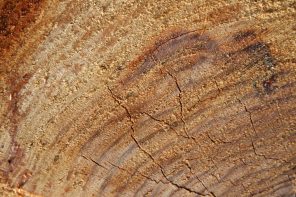Be patient toward all that is unsolved in your heart and try to love the questions themselves, like locked rooms and like books that are now written in a very foreign tongue. Do not now seek the answers, which cannot be given you because you would not be able to live them. And the point is, to live everything. Live the questions now. Perhaps you will then gradually, without noticing it, live along some distant day into the answer.
Rainer Maria Rilke
Yesterday I met a cat in the desert. I was writing in one of the many charming plazas on this small college campus in New Mexico where I am attending a literary conference. She walked up the adobe steps as if the shuttle from town had just dropped her off. She jumped onto the bench, lay in front of my computer, pounced to a second floor balcony, climbed a wiry desert apple tree. She was completely at home in that place where she did not belong, probably smuggled onto the property by another conference attendee. Her coloring was all high desert with black calico and sagebrush eyes. She looked natural; she was clearly out of place.I thought of all the spiritual contraband I’ve smuggled in my life and wondered if it added so well to the scenery as this collared cat in the desert. Do my heresies ever provide comfort when they rub against the legs of my friends’ theologies? Or are they simply a nuisance of cat hair, to be brushed away, vacuumed up, emptied in silence?
We all are heretics. How can we not be, with none of us able to see the face of God? Yes, the very blessed can catch a glimpse of the back of God, the place he just was standing, like a gentle Moses in the suburbs. But who among us can profess to an omnipotent knowledge, a complete understanding that leaves us immune to contradicting the faiths we profess to ascribe to?
I, as many before me, shrugged off the coat of my childhood faith and found myself bare to the elements because I could not reconcile who I had been taught God was and who I knew him to be from the love manifested in my life. I had three choices: reject all I had been taught about God; curl blindly into a faith structure that would lower the God I love; or live in the tension.
John Keats thought the growth of man was the ability to have negative capability: “when man is capable of being in uncertainties, mysteries, doubts, without any irritable reaching after fact & reason.” We are human, we hate unresolved, looming tension, and along with the calling cards we hand out of ascribed traditions, beneath there lurks that secret, silent honesty—the line of thinking worked out by the real sweat and blood of those conveniently quadrilateral points: reason, tradition, scripture, and experience. What is theology, after all, if not our personal beliefs born as the result of that tension between who we are taught God is and how we understand God-ness through our interactions with fellow people, fellow image-bearers? Theology is fluid as the rivers flowing into Eden, a constant reconciliation of interpretations.
I left my childhood faith tradition and became Eastern Orthodox. I needed the space it gave for tension and mystery, but it has not solved all my spiritual quandaries. In the months leading up to my college graduation I had been one of the most liberal students at my private evangelical university, the only Orthodox student for an extended period of time and the head of the student newspaper, which gave me an intimate view of the underbelly of bureaucracy passing rules from board members to faculty and students—several generations and a million worldviews apart. After a year-long string of actions and comments from my school’s administration functioning under the mentality that LBGT students did not and could not flourish at our school, I organized six first-person testimonials of lesbian, gay, and bisexual students about their time as students at the Christian institution.
The responses to these articles were overwhelmingly positive from faculty and students and humanized what had been a hypothetical talking point. However, I still was shamed by some, told I was no Christian others, told by the administration I had embarrassed them. I woke daily with stomachaches and constantly had to ask myself if the shame came because I had done something wrong or because people disagreed with me.
Internal tension is distressing and uncomfortable but can be resolved, usually, at leisure. External tension—being the outsider, living on the margins—is often unbearable. Even in my most beloved setting, my church, I am a heretic. Neither my evangelical college nor my Orthodox faith supports gay marriage or lends dignity to LBGT identities.
I could run, forsaking the religion I love on the basis of one deeply important disagreement. I could bend to authority, so often a healthy act, and rewrite my gut-truths to safe dogma. Or I can live in the tension.
My love for God, and his for me, is inescapable; each day I feel it tangible as air. For the sake of this love and my love for my parish—gathering of my very soul—I will not run. For my God’s thirst for truth, and for the sake of the holy love I have seen in same-sex unions, I will not curl into dogma I cannot profess. So I remain here, in the tension.
In permaculture there exists the “edge effect,” an ecological concept that illustrates how in the space where two ecosystems overlap the most life flourishes. Here, there are species present from both ecosystems and even more, a third, unique to the overlapping territory. Margin-dwellers.
I am not always a good margin-dweller. I hold too large a piece of bitterness toward my former university, a place where I met some of the most kind, clear-eyed, brave people I have ever known.
The truth is I didn’t go to my college graduation. I told people a lot of things: I don’t have that kind of need for closure. In spite of being Orthodox, I don’t like long ceremonies. I don’t think the robes are flattering.
These were all true, but I was leaving one out. I don’t want to stand up in front of my college’s administration and do that smile-song-and-dance as if we haven’t been making each other’s lives hell for the last month.
We need margin dwellers. We need people tending the fertile land where progress takes root. My priest was the first to tell me, “There are many worse things than being a heretic.” I believe it means you are asking important questions and the conversation isn’t over yet.
And what is the cost? What if you’re wrong, lose the bet, turn up working for the wrong team unknowing, cast at the feet of a God you misinterpreted? A God you know you misinterpreted.
A person I love very dearly once gave me the most spiritual comfort I’ve ever know, saying, “If I die and stand before God and learn I am wrong, if homosexuality is a sin and I have supported wrongly, then I will say, ‘I loved in accordance with what I knew,’ and I will have no fear.”




